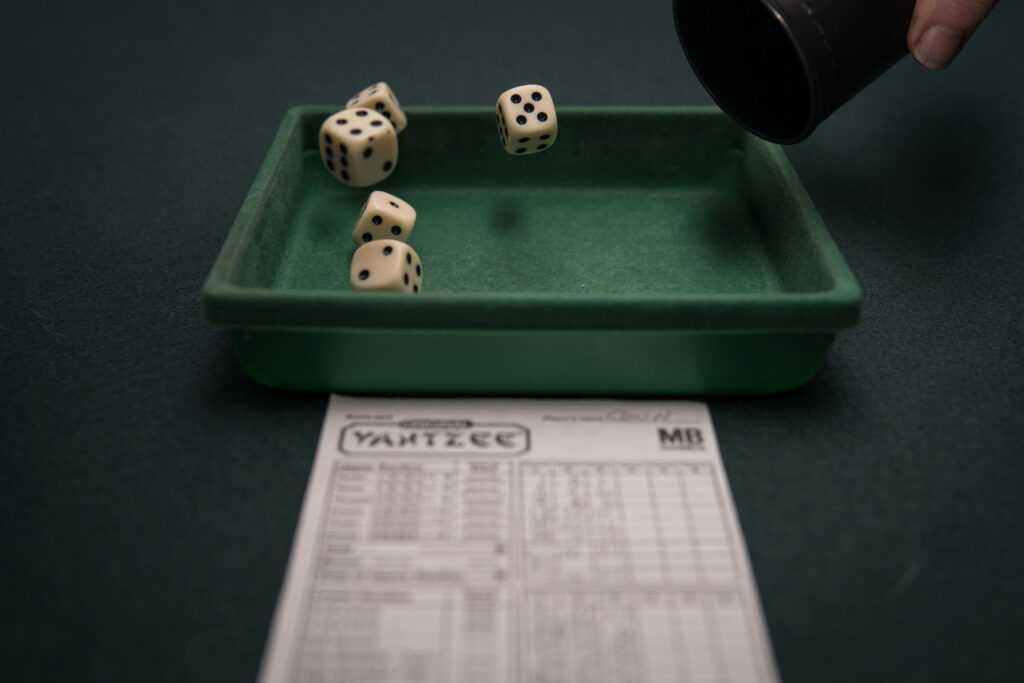Why Understanding Odds Matters
Odds aren’t just numbers on a screen—they’re a reflection of probability. When you place a bet, the odds tell you how likely something is to happen, and how much you’ll win if it does. The lower the odds, the more likely the event is thought to happen—and the less you’ll earn from betting on it. Higher odds mean the outcome is less likely, but if it hits, the payout jumps.
Most casual bettors treat odds like background noise. They throw money at teams or outcomes they ‘feel good’ about, without understanding what those odds are actually saying. That’s not betting—it’s guessing. And it’s a fast way to lose consistently.
The real edge comes from using odds to make informed choices. That means knowing, for example, that odds of 2.00 (decimal) imply a 50% chance of winning. If you believe the true chances are higher than that—and you’re right over the long run—that’s how profits happen. It’s not about luck. It’s about knowing when the odds don’t match reality and capitalizing on it.
Misunderstanding odds is one of the most common ways gamblers lose money. Not because the house always wins (though often it does), but because most players are flying blind. You don’t need a math degree. But you do need to know what the numbers mean—and why they matter.
Types of Betting Odds Explained
Understanding how to read different types of odds is a foundational skill in sports betting. While the format may vary by region, the core concept remains the same: odds reflect the potential payout and the likelihood of an event happening. Here’s a breakdown of the three most common odds formats.
Decimal Odds
- Where They’re Used: Europe, Australia, Canada
- How to Read Them:
- Decimal odds represent the total return for every $1 wagered, including your stake.
- Example: Odds of 2.50 mean that a $10 bet returns $25 (your $10 back plus $15 in profit).
Formula:
Total Return = Stake × Decimal Odds
Why It’s Beginner-Friendly:
- Straightforward multiplication makes winnings easy to calculate.
- Popular on international online sportsbooks.
Fractional Odds
- Where They’re Used: Most commonly in the UK and Ireland
- How to Read Them:
- Represented as fractions like 5/1 or 7/2.
- The first number (numerator) shows how much you’ll win relative to the second number (denominator), which is your stake.
- Example: At 5/1, a $10 bet wins $50 profit plus your original $10 back.
Interpreting Fractions:
Odds of 5/2 = For every $2 wagered, you gain $5 profit.
Key Tip:
- Higher-numbered fractions generally mean larger payouts but lower probability.
American Odds (Moneyline)
- Where They’re Used: Widely used in the United States
- How to Read Them:
- Comes in either a plus (+) or minus (−) format:
- +Odds: How much profit you’d earn on a $100 bet (e.g., +200 = $200 profit on $100 bet)
- −Odds: How much you must bet to win $100 (e.g., −150 = Bet $150 to win $100)
Examples:
- +150: Bet $100 → Win $150 profit
- −120: Bet $120 → Win $100 profit
Why It Matters:
- Moneyline odds also indicate favorites and underdogs:
- Minus odds = favorite (higher chance to win, lower payout)
- Plus odds = underdog (lower chance to win, higher payout)
Understanding these odds formats helps you identify value, calculate risk, and make more informed bets regardless of the platform or sport.
Key Bet Types Beginners Should Know
Single Bets
This is betting stripped down to its core—one bet, one result. You put your money on a single outcome, and if you’re right, you win. If not, you’re out. No complications, no multi-legged strategy. It’s the best starting point for beginners because it keeps things clear and manageable. Know what you’re betting on, know the odds, and watch it play out. Simple.
Accumulator (Parlay) Bets
This one’s a bundle. You group together multiple bets—say, five football games—into one slip. To win, every single leg has to hit. If one result fails, the whole thing collapses. Sounds brutal? It is. But that’s the tradeoff: higher risk for a shot at a much bigger payout. Beginners should tread carefully here. Parlays can lure you in with big numbers, but they rarely pay unless you really know your stuff—or get lucky.
Each-Way Bets
Common in horse racing, this is technically two bets in one. Part of your stake goes on your pick to win outright, and the other part goes on it just placing (usually top 2–4 finish, depending on the race). If your horse wins, you cash in on both. If it places, you still see part of that money back. It adds a safety net—especially useful in unpredictable events.
In-Play/Live Betting
The game’s started, and you’re still betting—that’s in-play. The odds shift in real time as the action unfolds. Ideal for people who know the sport and can read momentum. It’s fast, often frantic, and you’ve got to time your bets while keeping a cool head. React too slow and your shot disappears; react too fast without thinking, and you’re gambling blind. Tip: Watch for moments when public emotion drives odds out of whack. That’s where opportunity lives.
Odds vs. Probability: Don’t Mix Them Up
Odds aren’t magic numbers—they’re just another way of expressing probability. And if you’re betting based on vibes instead of math, you’re handing your money over to the house. Let’s cut to the chase: learning how to convert odds into implied probability is essential if you want to know whether a bet is worth taking.
Here’s how it works:
- Decimal odds: The formula is simple. Implied probability = 1 / decimal odds. For example, odds of 2.00 = 1 / 2 = 0.50, or a 50% chance.
- Fractional odds: Use this formula. Implied probability = denominator / (numerator + denominator). So 5/1 becomes 1 / (5+1) = 0.1667, or about 16.7% likelihood.
- American odds: These are a bit trickier.
- For negative odds (like -150): Implied probability = absolute value of odds / (absolute value of odds + 100)
- For positive odds (like +200): Implied probability = 100 / (odds + 100)
Don’t worry—you don’t have to do this by hand every time. There are free online calculators that handle these conversions instantly. Just plug the odds in and see the real chance behind the numbers.
Bottom line: stop betting based on gut feeling. Use clear math to see the risk/reward for what it is. It won’t make you invincible, but it will seriously up your game.
Bankroll Management Basics
Ask anyone who’s lasted in betting, and they’ll tell you the same thing: winning is great, but surviving matters more. It’s not hard to hit a lucky streak. The real challenge? Keeping your head, your wallet, and your judgment intact over time. That’s where proper bankroll management comes in.
First off, set limits—and mean it. Know exactly how much money you’re willing to risk, and make sure that number fits comfortably within your overall budget. This isn’t money for rent, food, or your kid’s field trip. This is betting money, full stop.
Next, stop chasing that one big hit. Discipline is built in small, boring decisions. Like not doubling down after a loss. Like logging your wins and losses honestly. Like walking away when you’re ahead—or when a bet doesn’t feel right. You don’t need to bet every day, or on every game. You just need a process and to stick to it.
Start slow. Stay sharp. Keep your emotions in check. Betting smart means understanding it’s not a sprint—it’s longevity that pays off.
Pro Tips for Smarter Betting
If you’re not tracking your bets, you’re not really learning. Write down every wager—what you bet on, the odds, the stake, and the result. Over time, patterns emerge. Maybe you’re better at betting on underdogs in MMA. Maybe you consistently lose on parlays. This kind of review beats any gut feeling.
Next, don’t stare at odds in isolation. Understand the market behind them. Odds don’t just reflect probabilities—they reflect what the betting public is doing. When a line moves, it’s often because money is flowing in a particular direction. That doesn’t mean the public is always right. It just means you need to know when you’re betting with the crowd—and when you’re betting against it.
Which brings us to value betting. That’s spotting situations where you believe the odds underrepresent the real probability of a win. It’s not easy. But if you find a bet where you think there’s a 60% chance of success, and the odds reflect only a 40% chance—you take that bet. Over time, that edge adds up.
Think less about guessing winners and more about identifying value. That’s the shift from casual punter to sharp bettor.
Betting Responsibly
It’s easy to start betting for fun and end up somewhere else entirely. The line between a hobby and a problem isn’t always obvious—but there are signs. If you find yourself chasing losses, betting more than you planned, or feeling anxious between bets, it’s time to step back. When the fun fades and stress takes over, that’s a red flag you shouldn’t ignore.
Daily habits can help you stay grounded. Set clear limits on both money and time before you start. Stick to them, no matter what. Log your wins and losses—not just your bets—and look for patterns. If your mood depends on the outcome of a game, reassess. This isn’t about avoiding risk; it’s about knowing your edge and protecting it.
There’s no shame in asking for support. Tools like self-assessment quizzes, exclusion programs, and betting limiters exist for a reason. Services like Gamblers Anonymous or national helplines provide discreet help at any stage. The strongest bettors know when to power forward—and when to pause. Betting smart means betting with self-awareness.
Combine Fitness with Focus
You don’t have to train like a pro athlete, but if you’re serious about betting, your body can’t be running on fumes. Staying physically active—even just walking 30 minutes a day—sharpens focus, improves mood, and builds the kind of mental discipline that actually translates to better betting decisions. Tired minds chase losses. Rested, energized ones know when to walk away.
Physical wellness also boosts patience and emotional control—two traits most losing gamblers lack. Betting while sleep-deprived, dehydrated, or wired on junk food doesn’t just feel sloppy; it leads to sloppy outcomes. Building basic fitness into your daily routine gives your brain the resources it needs to stay sharp under pressure.
This isn’t about six-packs. It’s about stamina—for thinking clearly and sticking to your strategy. Want a smarter edge? Start with your body. For more on this, check out Creating a Fitness Plan to Complement Your Gaming Lifestyle.
Final Thoughts
Betting isn’t a shortcut to easy money. It’s a skill-based game built on discipline, knowledge, and strategy. Pros don’t rely on luck—they rely on preparation. Knowing your odds, understanding bet types, managing your bankroll, and keeping your emotions in check are the real cornerstones. If you don’t have those dialed in, you’re just another donation to the house.
Odds and bet types aren’t optional reading. They’re your basic gear—the same way a mechanic needs tools. Learn how they work, practice with low-stakes bets, and don’t move on until you get the fundamentals. Chasing advanced tactics before you’ve mastered the basics is a fast track to losing fast.
Build smart habits early and treat every bet as a lesson. Over time, you’ll spot patterns, avoid common traps, and start seeing the game for what it really is: a long-term strategy built on sharp decisions, not blind hope.


 Otis Rogerstics is a dedicated author at GambleFitnessSplash known for his sharp insights on the relationship between technology, sports, and healthy living. His work focuses on practical strategies and digital tools that help readers improve both performance and balance.
Otis Rogerstics is a dedicated author at GambleFitnessSplash known for his sharp insights on the relationship between technology, sports, and healthy living. His work focuses on practical strategies and digital tools that help readers improve both performance and balance.

